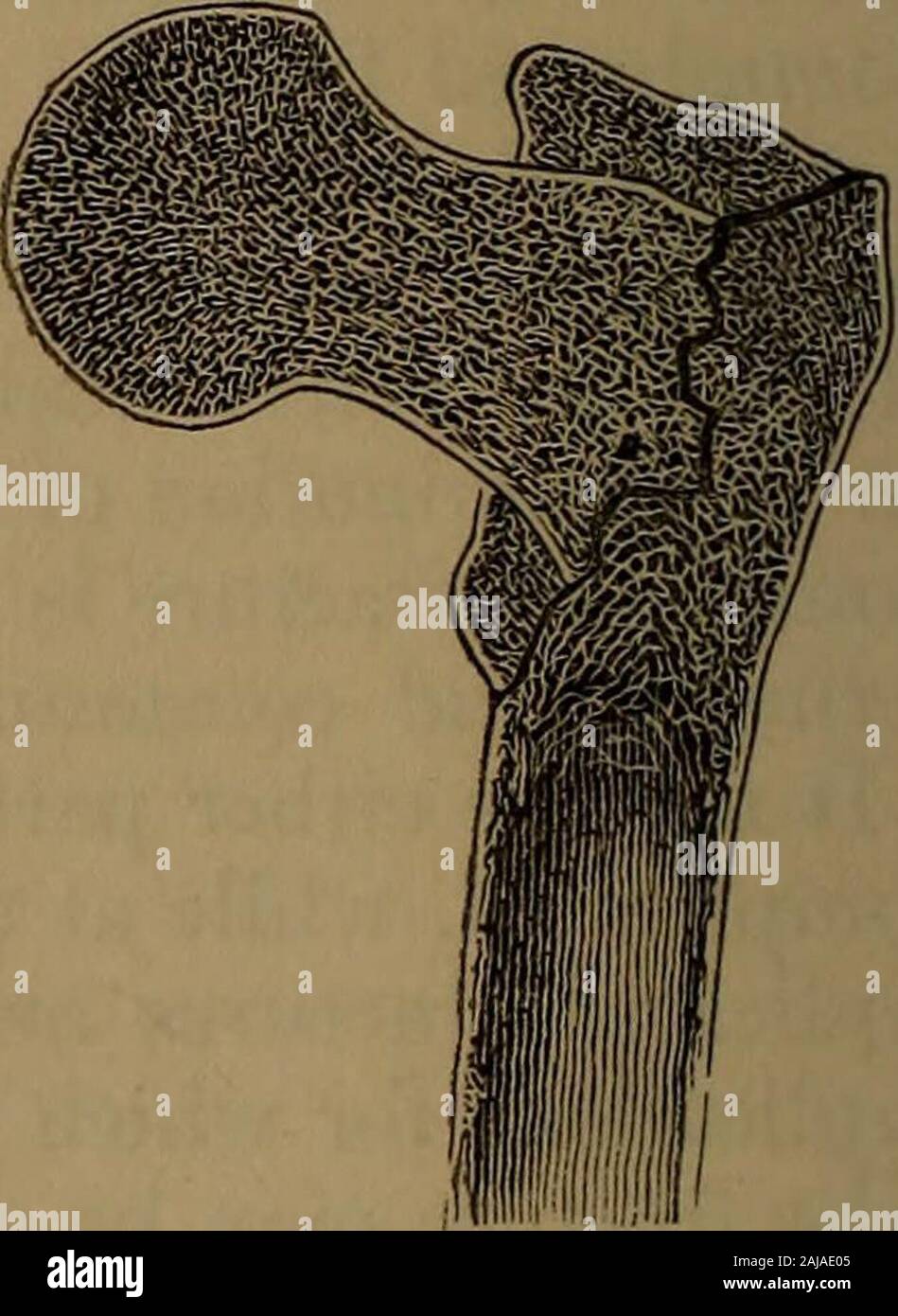A practical treatise on fractures and dislocations . Perforating and longitudinal fracture. Impacted, extra-capsular fracture ofneck of femur.—Vertical section. each other, the lamellated structure of one fragment penetrating thecancellous structure of the other. GENERAL ETIOLOGY OF FRACTURES. 29 Writers also occasionally speak of fractures en rave, en bee de flute,en bee de plume, spiroid, cuneate, etc.; but we do not see the proprietyof multiplying the divisions and incumbering our nomenclature bythese fancied resemblances. For all useful purposes, the divisionsabove given are sufficient. Ep

Image details
Contributor:
The Reading Room / Alamy Stock PhotoImage ID:
2AJAE05File size:
7.2 MB (292.4 KB Compressed download)Releases:
Model - no | Property - noDo I need a release?Dimensions:
1351 x 1850 px | 22.9 x 31.3 cm | 9 x 12.3 inches | 150dpiMore information:
This image is a public domain image, which means either that copyright has expired in the image or the copyright holder has waived their copyright. Alamy charges you a fee for access to the high resolution copy of the image.
This image could have imperfections as it’s either historical or reportage.
A practical treatise on fractures and dislocations . Perforating and longitudinal fracture. Impacted, extra-capsular fracture ofneck of femur.—Vertical section. each other, the lamellated structure of one fragment penetrating thecancellous structure of the other. GENERAL ETIOLOGY OF FRACTURES. 29 Writers also occasionally speak of fractures en rave, en bee de flute, en bee de plume, spiroid, cuneate, etc.; but we do not see the proprietyof multiplying the divisions and incumbering our nomenclature bythese fancied resemblances. For all useful purposes, the divisionsabove given are sufficient. Epiphyseal separations we shall not hesitate to class with fractures, and to submit them to the same rules of nomenclature. These acci-dents rarely occur after the twentieth year of life; since after thisperiod, and in the case of some bones at a much earlier period, theepiphyses are usually united to the diaphyses by bone. CHAPTER II. GENERAL ETIOLOGY OF FRACTURES. The causes of fracture may be considered as predisposing and ex-citing. Predisposing